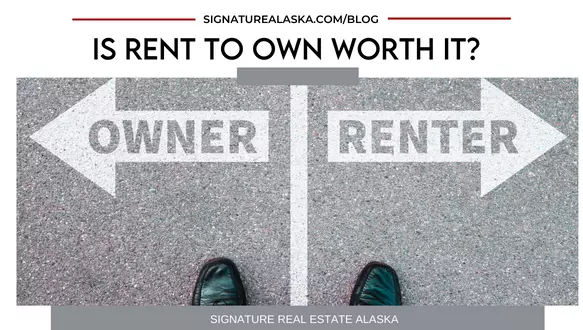
How To Manage Stress When Dealing With Home Financing
One excellent way to improve your financial profile is to buy a home of your own. But we won't lie: It's a long and potentially incredibly stressful process, especially when it comes to the dollars and cents of securing a mortgage loan. So how do you navigate the stress of the journey in order to reach Destination Homeowner? There's a lot that's within your control to help ease some of that stress and make the whole thing a little bit easier. If you take a few steps upfront to manage the financial details early, you'll thank yourself on moving day. Get pre-approved for a mortgage Getting your mortgage loan is arguably the most labor-intensive aspect of buying a home. You'll have to submit documents that show your income and expenses, including tax returns, bank statements, pay stubs, and more. A mortgage pre-approval is much more involved than its lighter cousin, the mortgage pre-qualification. But a pre-approval will help you understand exactly how your new home will fit into your finances and whether you can even afford the house you're currently touring. Some buyers make the mistake of getting pre-qualified for a mortgage, making an offer on a house they love -- and then discovering once they submit all the paperwork that they can't actually get a loan for that amount. Sound stressful? It is. Avoid that all-too-common scenario by taking care of the hard part early: Talk to a mortgage lender and get your pre-approval lined up so that when you do find a home that you could call your own, you can place an offer on it then and there without needing to wait for approval from a bank. Pick the best mortgage for your situation All mortgages will help you buy a home, but not all mortgages are created equal when it comes to your own personal financial profile. If you know you're only going to be in your current city for two or three more years before pursuing a career change elsewhere, for example, then maybe a 30-year fixed-rate mortgage is the wrong choice for you. You could build more equity in a shorter period of time with a 15-year mortgage, and an adjustable-rate mortgage might give you a more competitive rate for the time you'll be in the home. Conversely, if you are planning on digging in and staying for a while, then a 30-year fixed-rate mortgage might be exactly what you need. If you're a veteran or a first-time homebuyer, then you might be able to access loans from a government-sponsored entity (GSE) like the Federal Housing Administration or Veterans Administration, both of which offer loans that don't require a full 20-percent down payment. And that might mean you can become a homeowner a lot sooner than you thought! A mortgage broker can walk you through your options and help you choose the mortgage that will work best for your current situation. Save as much as you can Even if you're securing a low-down-payment or no-down-payment mortgage, you should still expect some out-of-pocket costs that you'll have to shoulder before you can start paying a mortgage instead of rent. Depending on the sales contract, buyers will likely have to pay for the appraiser and the inspector to look at the house and (respectively) appraise and inspect it. A seller might request earnest money in order to accept an offer, so buyers will have to provide that. Necessary repairs to the house might be taken on by the buyer in order to expedite the sale, so that's another possible expense to consider. There are closing costs that need to be paid to the title company upon closing, and if a buyer wants to purchase title insurance to protect the sale, that's an additional expense, too. And don't forget about the cost of moving -- you'll need time off work and a truck at minimum, or to hire your own movers. Then once you move in, you might need to pick up some new furniture or other items for your new space. If you're starting to get the idea that there's no such thing as saving too much before you embark on your home sales journey, then you have the correct impression. Don't let those costs sneak up on you; be aware of them and budget for them so you're not worried about how you're going to get it all done. Research before you bid If you've found a home that could be yours and you're ready to make a bid, stop and think before you decide on a number. You might think that offering the seller's asking price is a perfectly safe move to make (and it might be), but how will you feel when you learn that most sellers in the area are negotiating down from their listing price? (Here's how you'll feel: Like you left several thousand perfectly good dollars on the table that could have been yours.) And offering less than asking price could also be considered a safe move in some markets, but in others, you might have priced yourself out of consideration from the opening bid. A good real estate agent can explain your local market trends and help you come up with a bid that works with your budget and will be seen as serious and competitive by the seller. Agents can show you whether houses in the area have been selling for below or above the asking price and can help you find that sweet spot where both you and the seller are happy with the deal. If you can follow these four suggestions, your home purchase process will be a relative breeze -- and your stress levels will stay under control. You'll be glad you took the steps to smooth your path a little bit once you've finished the journey.

Can you buy a house before you turn 21?
There's a general worldview that the younger generations will never be able to achieve homeownership because housing values have outpaced wage growth for decades. This is absolutely true, and we're not downplaying the seriousness of affordability issues ... but, actually, you can become a homeowner well before 30. In fact, if you want to, there's little to stop you from buying a house before you turn 21; you can legally obtain a mortgage loan at 18, though your ability to do so isn't at all guaranteed. Is that really for you, though -- and how would you do it? Ask yourself these questions to determine how ready you are to buy and start taking appropriate steps to get there if you decide it's right for you. Are you going to stay in the same area for at least a couple of years? Unlike rent, homeownership isn't a lease you can cancel after a few months so that you can move on to greener pastures. You'll be paying a mortgage for at least a decade, if not three decades. You can, of course, sell your house before it's totally paid off, but you'll discover that selling a home is much, much more involved than finding a new place to live, packing, and moving. And it won't necessarily happen on your timeline; it could be months after your house goes on the market before it sells. As a general rule of thumb, don't buy a house if you think you might leave the area in the next two years. If you don't live in the house for at least two years, and there aren't certain extenuating circumstances surrounding your move, then you'll have to pay capital gains taxes on the property, which could potentially wipe out most or all of the equity you build in two years. How is your credit? You can get mortgage financing for a house with a credit score as low as 580 through some government programs, but the higher your credit score is, the better deal you're going to get on your mortgage terms. The best mortgage loans have low-interest rates, and lenders will offer you lower interest rates if your credit is good. This can actually be one of the biggest prohibitions for young aspiring homeowners. Credit is built over years, and if you weren't able to start building yours before you turned 18, you'll have a limited credit history to reference, which could mean less desirable loan terms -- or no mortgage loan at all. Many mortgage brokers can refer you to resources that will help you build or repair your credit. Do whatever you can to increase that credit score number; it'll pay off, literally, later on. How much money do you have saved? Next to the credit score, a lack of savings is another giant roadblock to getting a mortgage. You'll probably have to put at least a little bit of money down on the house because most mortgage loans require at least 3.5 percent, and 20 percent is ideal; with a 20-percent down payment, you won't have to pay private mortgage insurance, which can save you thousands of dollars over the years. That said, saving up a full 20-percent down payment is incredibly difficult if you're trying to do it before you turn 21. It may be a better financial move to save whatever you can and pay the mortgage insurance; on many conventional loans, the mortgage insurance disappears after you've acquired a certain amount of equity in the home. What can you afford? Many first-time homebuyers are often surprised to learn what they can afford to buy -- they might have been able to buy years ago if they'd only known! So don't assume that you can't buy a house just because you're young and haven't reached your full earning potential. It's entirely possible that you could be pre-approved for a mortgage loan today. But that loan might not cover the house of your dreams. You'll need to get a good idea of how much you can afford to spend on your mortgage every month, what that means for the range of home prices you want to consider, and whether that price range makes sense for your metro area. Where can you afford it? Within metro areas, there is often a wide variance in price range. You have your entry-level starter homes and your massive estates, and all the homes in between, typically grouped near other homes like them. Maybe you've got your heart set on a certain neighborhood that's simply unaffordable for you right now, and the neighborhoods where you can afford to buy don't appeal to you at all. This may be the point where it's beneficial to talk to a real estate agent. They buy and sell homes all over your area, and it's quite possible they know about nooks and areas where you can afford and where you'd actually like to live -- and that you had no idea existed. Do you understand the additional costs of homeownership? Your mortgage loan is going to include both principal (the balance of the loan) and interest (additional money charged for borrowing). But some buyers don't realize that it also includes taxes and homeowners' insurance, all packaged into one payment. This means that to truly understand what your monthly payment will look like, you might need to get some quotes on homeowners' insurance from a local insurance agent and research property taxes. Some online affordability calculators have some of these metrics baked in, but they aren't always accurate -- especially insurance rates. So double-check them before you decide to trust them. Is your household going to grow anytime soon? This doesn't necessarily mean getting married or having a baby; maybe you want to get a dog in the near future. If you think you might be making changes to your household in the next few years, wrap them into your home search. That way you can ensure you're buying a place that will grow with you, so you can be comfortable there for the immediate future and then some. Can someone help co-sign? One solution to the problem of low or no credit and a low down payment is to have a parent or other family member co-sign on your mortgage loan. This is a huge favor to ask, and you should be aware that if you default on your loan, your co-signers on the line for whatever you owe. It's not something to ask or give lightly, and if someone does offer to co-sign for you, make it your top priority to pay your mortgage on time so that you can preserve that relationship for years to come. Are you set on a single-family home? For many young buyers, a single-family home with a yard might not make the most sense. If you want a place of your own, looking at townhomes or condos, or even a multi-family property like a duplex up to a four-unit apartment building, could be a much better decision for you than holding out for a single-family house. If you're in a townhome or a condo, you are still building equity that can be leveraged if or when you do decide to move up to a house in the future. And if you have the ability to purchase a building with multiple units, you could wind up paying off most or all of your mortgage by renting out the additional units. (And you'll still get all the advantages of living in your property, including lower rates on homeowners' insurance.) Could you rent out some rooms to help pay the mortgage? Even if you can't afford to purchase a building with multiple dwelling units, maybe you can get a place that's a little bigger than you'd need on your own and rent out one of the bedrooms to a friend. That way you could supplement your mortgage, or possibly pay it off entirely, with rental income. Some homeowners vacate on weekends to rent their places on Airbnb, which could be another option for you. How stable is your life in general? If you're prone to changing jobs frequently, wanderlust, and generally don't have -- or want -- a lot of stability in your life, homeownership might be a big stretch for you right now. It's OK to put the goal on pause if you're not sure you'll be able to achieve it immediately; just wait until things settle down (and work on that credit and savings in the meantime!).

Should You Support Charities As A Real Estate Agent?
There are two schools of thought when it comes to real estate agents publicly supporting charities. One school holds that this is a solid business strategy — it can help differentiate agents in crowded markets especially, and many clients like to feel good about helping good people accomplish good things. The other school, however, holds that incorporating a charity and your support of that charity into your real estate business is too risky. The world is too divisive as it is, and choosing a particular charity that you’re going to advocate for and financially provision above others can drive people away just as much as it can draw clients to your door. If you’re on the fence about whether to support a charity as a real estate agent, consider the many nonpartisan, non-controversial options that are open to you, then have a discussion with your broker about any brokerage policies they might have. Agents who carefully select the charities they support and have backing from their brokers can find that supporting charitable causes can be an excellent way to elevate and differentiate themselves. Why give back? Many real estate agents want to give back to their communities or to organizations or networks that have meant a lot to them in their lives, but they are hesitant to indulge that desire because they’re worried that giving to certain charities could reflect poorly upon them. Today’s very divided political landscape means that if certain issues such as gun control or protection of the Second Amendment are high on your priority list, then you could wind up alienating a certain group of your client population. It’s true that choosing an overtly political charity or cause is probably going to be a turnoff for a least a portion of your client base. Some agents are willing to sacrifice those clients in exchange for reaching others who align more closely with their views. Even if you’re not, though, it’s still possible to find charitable causes that are close to your heart and values without driving off a large group of people who might be otherwise very happy doing business with you. For example, someone who believes strongly in the Second Amendment might have grown up hunting and also have strong feelings about conservation and nature preservation, which are potentially more widely shared among the general population. And someone who’s a gun control advocate in private life might choose to support children’s causes or animal charities, which may overlap with their values. Believe it or not, giving to charity can be a very smart business decision, depending on the market in which you’re operating and your client base. Millennials, in particular, tend to value companies and businesses that prioritize community health, so if you can show that you’re paying attention to social issues that matter and you’re contributing what you can to those causes, your clients will feel proud to affiliate themselves with you and your business — and could even start humblebragging about how great it is to support charity while buying or selling a home to their friends, which is only a win for you as their agent! List your options There have to be at least a dozen different ways to give back to your community or the world at large when you start to think about it, so even if you’re on the fence about charitable giving, spend some time making a list of the things you might be able to do that could provide good reputation points for your business and your name. If you’re serious about putting real ideas down on this list, you might be pleasantly surprised by the possibilities that arise. Some different areas to consider might include: Local organizations, charities, and support effortsStart by listing different local opportunities for giving back that you can uncover or explore. Many agents might disavow the idea of helping out charity as a business differentiator because they think it alienates some people, but if you decide to help out local schools, food pantries, or natural resources by organizing school supply drives, grocery drives, or park cleanups, you’ll probably find that more people are drawn to you than repelled. Even clients who don’t have kids or who don’t use the park may appreciate your efforts to help out the community in which they live and could respond accordingly. Maybe you could even host some kind of gala event and donate the proceeds to a local group, such as a historical society that works to preserve landmark homes in the area. Even if you don’t want to advertise too many of your personal values to clients, there are ample options to give back to your local community that are laudable and will help you connect with buyers and sellers alike. Think of the childrenIt’s really true that the children are our future, and even people who don’t have children can often appreciate your efforts to make things better for kids and help prepare our future leaders for the jobs ahead of them. There are countless sports teams and clubs to sponsor, and if you’re feeling really ambitious, you could also fund a scholarship to help a local child (or several children) go camping or take advantage of educational opportunities they couldn’t otherwise afford. Home is where the heart isA real estate agent sponsoring real estate-related charities makes a lot of sense! Whether you’re partnering with Habitat for Humanity or an outfit like Giveback Homes, or have some other home- or housing-related charitable outfit that you’re supporting, opting for the real estate charity can be a safe and easy way to show you care without risking too much. That said, it’s also relatively common especially because it is a little safer and more obvious. There’s nothing wrong with supporting real estate-related causes, especially if they’re close to your heart or there’s some intensely local housing issue that your support will help address, but be aware that it might be considered an easy option and make sure you’re giving equal weight to other charities. Leverage life experiencesOne great alternative to going with a real estate-related charity just because it happens to dovetail with your job is to think about your own personal experiences and see if you can make some kind of charitable connection that way. Perhaps you have a soft spot for animals and several pets, so it might make sense for you to focus on animal shelters and foster groups. Veterans may find that they want to devote some of their time and energy to veterans’ causes, while people who have suffered from certain diseases (or have seen loved ones suffer) could feel inspired to pledge some of their earnings toward that disease’s eradication. Real estate agents who have been victims in domestic violence situations may want to help out others by donating to shelters or offering seminars on how to achieve financial independence, for example. There’s nothing wrong with making a personal connection to the charity you’d like to support, so don’t be afraid of delving into your own experience and seeing what emerges. Let the client chooseMaybe you know you want to offer some kind of charitable incentive or bonus to your clients, but you really don’t want to be the one to select which charity. You can always let your clients decide which charity will benefit from your generosity, which can be a nice way to involve them in the decision — and you can also give them an opportunity to claim a tax credit for the donation. This can really help set you apart in the eyes of your clients and give them something to talk about, once when they transact with you and again when tax season rolls around! After you’ve outlined your options, decide whether you want to choose just one strategy, or perhaps try a couple of different ones. You will likely find that one is a better fit for your business than the other, but there’s no harm in doing some testing with different models before you decide whether you’re going to incorporate charitable giving permanently into your sales system and how, exactly, that will look for you.
Categories
Recent Posts










